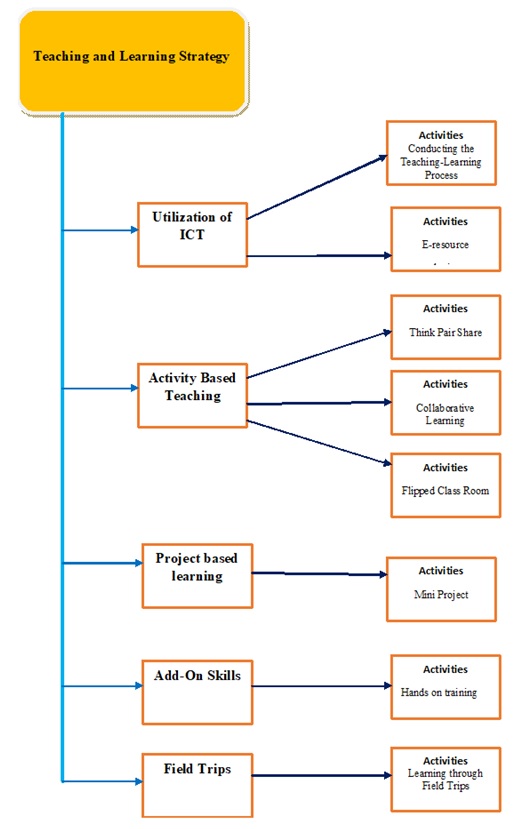DEPARTMENT OF COMPUTER SCIENCE & ENGINEERING
Innovations by the Faculty in Teaching and Learning
The Department of Computer Science and Engineering places significant emphasis on adopting creative teaching methodologies. To nurture and advance innovative techniques, the institute conducts a faculty development program at the beginning of each semester. This program operates at an institute-wide level, aiming to cultivate and propagate inventive approaches to teaching.
Within the department’s facilities, classrooms have been equipped to facilitate effective teaching. Each classroom is furnished with essential tools including projectors, blackboards, and whiteboards. Notably, every classroom is equipped with LCD projectors, an invaluable resource employed by faculty members for their instructional presentations.
Furthermore, Students are encouraged to participate in group discussions, collaborative team-building activities, and presentations. This interactive approach aims to foster a dynamic learning environment that goes beyond traditional lectures.
Incorporating innovative teaching methodologies empowers faculty members to deliver lectures in a more efficient and impactful manner. Encouraging students to take an active role in their learning journey, these creative teaching techniques contribute to cultivating self-reliant and critically minded individuals. The CSE department has implemented the following teaching and learning Techniques

